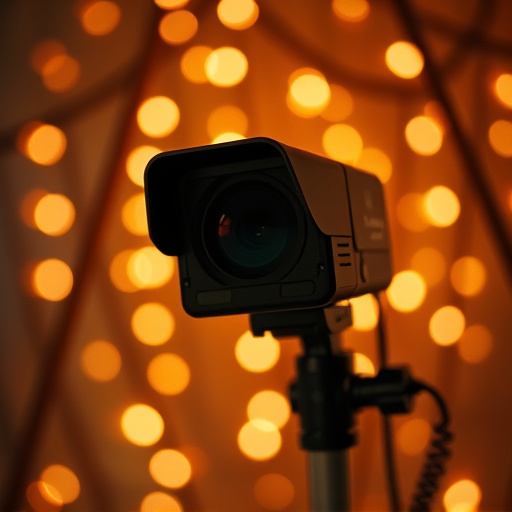Businesses leverage hidden cameras for security, integrating them discreetly into everyday objects like light fixtures and smart speakers. These miniature devices enhance surveillance without alerting threats, offering comprehensive coverage. However, ethical concerns arise regarding privacy, especially in homes, as advocates and privacy groups debate responsible use and consent. Hidden camera locations for business operations must balance effective deterrence with protecting individual autonomy and data security.
In today’s digital era, miniature surveillance devices hidden within everyday home objects are transforming security and privacy. From discreet camera placement for businesses seeking enhanced monitoring to common household items repurposed as covert surveillance tools, these innovative applications offer both advantages and ethical dilemmas. Explore the fascinating world of hidden cameras, considering their potential impact on privacy while uncovering unique ways they’re being used to bolster security measures.
- Exploring Discreet Camera Placement for Businesses
- Common Household Items as Covert Surveillance Tools
- Ethical Considerations: Privacy and Hidden Cameras
- Enhancing Security: Innovative Mini Camera Applications
Exploring Discreet Camera Placement for Businesses
In today’s digital era, businesses are increasingly turning to miniature surveillance devices, particularly hidden cameras, to enhance security and monitor operations. Exploring discreet camera placement is crucial for achieving optimal results without compromising aesthetics or raising suspicion. Strategically positioning hidden cameras in various locations within a business environment can provide comprehensive coverage while maintaining an air of normalcy.
For instance, these cameras can be concealed within everyday objects such as light fixtures, smoke detectors, or even potted plants. Such Hidden Camera Locations for Business offer unparalleled versatility and discretion. By integrating surveillance technology seamlessly into the existing infrastructure, businesses can monitor activities without alerting potential threats or disrupting day-to-day operations.
Common Household Items as Covert Surveillance Tools
Common household items can serve as unexpected surveillance tools, offering discreet observation options for both personal and professional purposes. From smart speakers to smoke detectors, everyday objects are being reimagined as hidden camera locations for business and home security alike. These covert devices provide an added layer of protection or insight, allowing users to monitor activities without raising suspicion.
For instance, a seemingly innocuous smart speaker can double as a surveillance device, capturing audio and potentially video through integrated microphones and cameras. Similarly, a standard smoke detector could be modified to include hidden camera components, providing visual data from elevated positions within a structure. Such innovative approaches blur the line between everyday convenience and advanced monitoring systems.
Ethical Considerations: Privacy and Hidden Cameras
The proliferation of miniature surveillance devices has raised significant ethical concerns, particularly around privacy and the use of hidden cameras. As these tiny cameras become more accessible and integrated into everyday home objects, the potential for invasive monitoring increases. The issue is not just about who is watching but also where these hidden camera locations are situated. In business settings, the use of surveillance technology can be justified to protect property, employees, or customers, but the same arguments do not readily translate to domestic spaces.
Privacy advocates argue that the presence of hidden cameras in homes erodes trust and poses a constant threat to individual autonomy. The very nature of these devices allows for unconsented observation, undermining the sanctity of personal spaces. This is further complicated by the potential for data misuse or unauthorized access to recorded footage. In contrast, proponents may suggest that responsible use, with clear consent from residents, could provide benefits like enhanced security and peace of mind. However, drawing a line between reasonable surveillance and invasion of privacy remains a delicate balance, especially in light of the growing number of hidden camera locations for business operations.
Enhancing Security: Innovative Mini Camera Applications
Miniature surveillance devices, or hidden cameras, have transformed the way we think about security. Their compact size allows them to be seamlessly integrated into everyday home objects, offering a discreet yet powerful tool for enhancing safety and peace of mind. From smart doorbells that capture visitors’ faces to miniature motion sensors disguised as bookends, these innovative applications provide businesses with unprecedented visibility without compromising on aesthetics.
Hidden camera locations for business aren’t just about sneaking peeks; they serve as effective deterrents against theft, vandalism, and other malicious activities. By strategically placing these devices in areas like office break rooms, retail stores, or warehouse inventory sections, businesses can maintain a constant watch, ensuring the integrity of their premises and assets. This technology’s versatility opens up countless possibilities for enhanced security measures, making surveillance more accessible and less obtrusive than ever before.
The integration of miniature surveillance devices into everyday home objects presents a fascinating evolution in security measures. From business operations seeking optimal, discreet camera placement to ethical debates around privacy concerns, this technology raises important questions and offers innovative solutions. As mini cameras become more accessible, understanding their responsible application is key. By exploring the potential of hidden camera locations for businesses while navigating the ethical landscape, we can harness these innovations to enhance security without compromising personal privacy.
